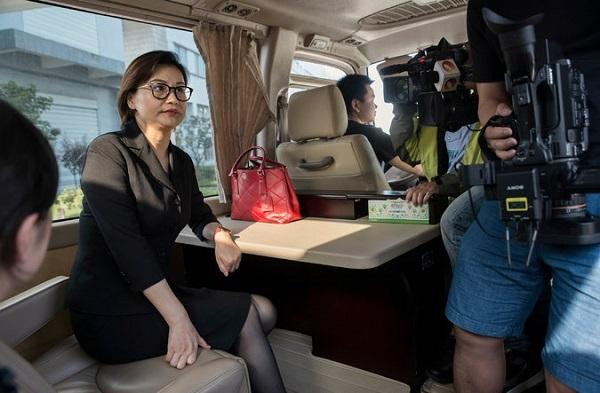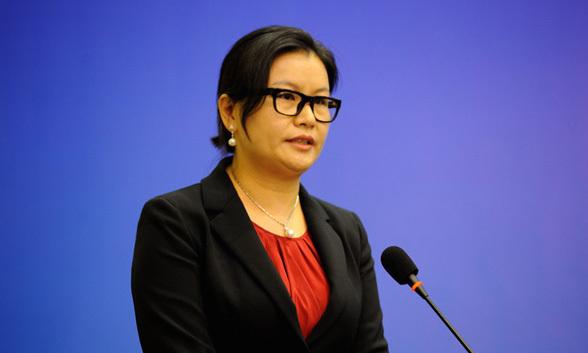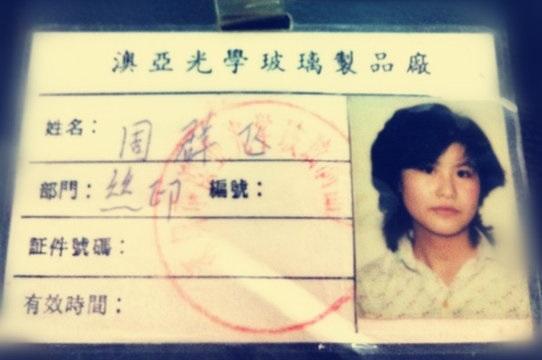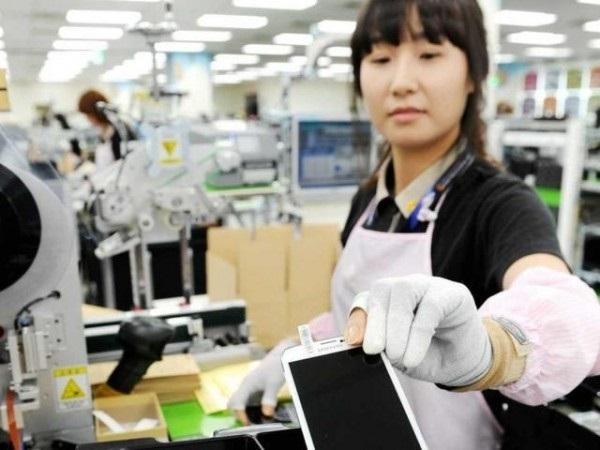563
How factory girl Zhou Cunha made a fortune of $8 billion
"The founder of a global provider of screens, Ms. Zhou has formed in China a new class of women entrepreneurs who built their fortunes from nothing — a rare phenomenon in the business world. According to Forbes magazine, in Japan there was not one female billionaire, who set up her business from scratch. Most women from the United States and Europe amassed their fortunes thanks to a large inheritance." Rusbase publishes the story of a Chinese entrepreneur in the skirt, which managed to wrap the experience of a country girl in a multibillion-dollar business.
Zhou Cunha — the richest self-made woman in the world. MS Zhou, founder of the company Lens Technology, owns a mansion in Hong Kong worth $ 27 million. She flies to Silicon valley and Seoul on a private jet for talks with the leadership of the major customers — Apple and Samsung. It has hosted Chinese President XI Jinping when he visited the headquarters of her company.
More comfortable she feels when walking around the plant and oversees the process.
She is ready to immerse hands in a tray of water to determine whether realized temperature to the desired point. She is able to explain all the details of heating the glass in a solution of ionized potassium. They find themselves in a grinding machine, it can ask to move the technology to the sidelines to replace them.
Ms. Zhou knows his stuff. As a teenager, she worked for many years at the factory for a native of the poverty-stricken village in the Central part of China is very prestigious.
"Sometimes she can sit for the machine operator to check the process for errors," says James Zhao, General Manager of Lens Technology. "If it encounters any problem, she will ask "Why are you overlooked?", I would feel very ridiculous."

Zhou Cunha is conducting a press tour of the company's Lens Technology
Ms. Zhou honed practical knowledge in multi-billion dollar industry of the world level. Now Lens Technology is a leading provider of so-called safety glass, which is used in laptops, tablets, mobile gadgets, including Apple iPhones and Samsung Galaxy smartphones. It is expected that this year the plants will produce more than a million glass screens.
"This industry requires the most modern technological solutions," according to stone Wu, an analyst at research firm IHS Technology. "Take a ruler and look at the division at 0.5 mm. You will immediately become clear why it is so difficult to release such fine details".
The founder of a global provider of screens, Ms. Zhou has formed in China a new class of women entrepreneurs who built their fortunes from nothing — a rare phenomenon in the business world. According to Forbes magazine, in Japan there was not one female billionaire, who set up her business from scratch. Most women from the United States and Europe amassed their fortunes thanks to a large inheritance.
In any other country in the world, there are so many independent women billionaires in China. The Communist party led by Mao Zedong promote gender equality, allowing women to reach their potential after the reign of capitalism, according to Juan Asana, a specialist in the field of Chinese business and Professor of international management at the school of MIT (at mit). In a country with a limited number of established players and entrepreneurs like Madam Zhou had the chance to quickly make a career at the dawn of the development of the business in the 1990's, when the engine of China's economic growth is gaining momentum.
The share of Ms. Zhou in the company Lens Technology, published in the IPO this year is $ 7.2 billion.
Ms. Zhou is not so famous a leader as Jack MA, the billionaire founder of the giant Internet sales Alibaba. Few people in China ever hear her name before the company went IPO. She rarely gives interviews or appears in public.
Ms. Zhou looks very elegant, preferring suits from Christian Dior. Chubby cheeks and glasses give her the appearance of important owls, very picky and demanding with colleagues: "Sit up straight!", — command tone she says to the Director General during the meeting. However, she radiates charm and humanity, quietly accepting the fact that any disputes can be settled in a million ways.
"In the village where I grew up, most girls had no choice. Most often they met someone or got married and spent his entire life in the province," she said during an interview in the office, which sported a wooden statue of Mao and a 27-inch MacBook. "I chose the path of business and do not regret it."

Crazy work the youngest of The three children in the family, Ms. Zhou was born in a tiny village in Hunan province in Central China, in an agricultural community two hours from the capital Changsha. Her mother died when she was 5. Her father, skilled factory workers, were injured, lost a finger and almost totally blind.
At home, she helped the family to raise pigs and ducks for food and additional income. At school she differed from peers.
"She was a hardworking and talented student," says her former teacher in a middle school Joon-Saaby. "One day I read aloud to the class her essay "My mother". It was so touching that all eyes filled with tears."
Despite its focus on education, Ms. Zhou left school at 16 and went on a trip to the South of Guangdong province to live in the family of her uncle and find a decent job. She dreamed of becoming a fashion designer, but eventually settled on manufacturing in Shenzhen, making lenses for hours for a dollar a day.
Working conditions, she said, was severe. "I worked from 8 am to 12, and sometimes up to 2 nights" — says Ms. Zhou. "There were no shifts, we had more than a dozen people, and every one of them was polishing the glass. Such work has not been fun for me".
Three months later, she decided to quit the job and wrote the chief a letter of resignation. In it she complained about the processing and monotony. Despite this she expressed her gratitude for the work and explained the care that was expecting more.
The letter made an impression on the Director of the factory. He said he was just going to introduce new production technology. He asked her to stay, promising promotion. This proposal was the first in a series of follow-up in the next three years.

The identity of Mrs. Zhou first work in the factory
In 1993, Ms. Zhou, which was 22, decided to start my own business. She has accumulated $3000, and with a few relatives they opened their working space adjacent to the plant supervisor. They attracted customers by offering them lenses hours higher quality.
All the worries about the new company rests on the shoulders of Ms. Zhou. She was debugging and designing factory equipment. She studied the methods of screen printing and advanced techniques that enabled it to improve print nisogora glass.
"In the dialect of the province Huang we call such women "ba de man". This word is called the person who dares to do what you are afraid to do other people," says her brother, Zhou Xinyi. Then he helped her to open his own workshop, he now works in the Board of Directors of the Lens.
During operation, Zhou Cunha managed to marry his former boss, a baby and a divorce. She then remarried and bore a second child from his old colleagues, who also is on the Board of Directors of the Lens.
The style of Zhou borders on obsession. The headquarters of her company is one of the production buildings in Changsha. In her spacious office, the door behind the Desk leads to a small living room, ensuring her the opportunity to wander around the plant at least a day and night.

Occupying a leading position in the market Ms. Zhou became a billionaire thanks to mobile phones.
In 2003, she continued the production of glass for hours, but suddenly she received a call from the Executive Directors of the company Motorola. They asked her if she wanted to help them improve glass screens for their new phone Razr V3.
Then most of the displays on mobile phones were made of plastic. Motorola wanted to make a glass screen, which would be more scratch resistant and clearer transferred image of text messages, photos, and multimedia files.
"They called me and said, "Just answer us "Yes" or "no", and if you still agree, we will help you with the organization of the process," says Ms. Zhou. I said "Yes".
Shortly afterwards, a large number began to receive calls from other mobile phone manufacturers like HTC, Nokia and Samsung. Then in 2007, Apple came on the market with the touchscreen iPhone, completely changing the rules of the game in the world of mobile devices. Apple chose the Lens as the vendor, whereby the company Zhou took the leading position in China.
After that, Ms. Zhou has invested generously in new technology and has hired skilled technical staff. Her colleagues have mentioned that time and again for another loan at the Bank she laid her own apartment. For the construction of its manufacturing enterprises in three cities of the country took five years.
"She is a passionate entrepreneur and is directly involved in the work at every stage," says James Hollis, Executive Director at Corning (cooperates with the Lens Technology). "I watched the growth of her company and how she managed to rally a strong team. There are now more than 100 competitors in this field, but Lens Technology is definitely the player of the first rank".
Lens work around the clock: 75000 workers have three main production facilities, which occupy about 800 acres in the region of Changsha. Every day the company receives a large consignment of glass from global suppliers like Corning from the United States and Asahi Glass of Japan.
Glass cut out, customize to the required size, drilled and polished in order to achieve perfect transparency of each plate. The glass is then quenched in a solution of potassium ion, paint, and eliminate defects. At the last stage of processing safety glass cleaned and coated with dirt-repellent and antireflective films.
Ms. Zhou develops and coordinates almost every step. She is careful to every detail, taught her in childhood. "When my father lost his sight, we always put things in designated places for them. The slightest deviation could cause problems," she says. "The same attention to detail I require."
Problems in work ethics in the company Lens not ever occurred, unlike other manufacturers like Foxconn (note Rusbase: Taiwanese electronics manufacturer Foxconn is famous for its poor working conditions and long working day). Current and former employees say that the work in Lens Technology requires full-time commitment. The hardest part of doing young women: they check the quality of the glass at different angles, trying to identify the weaknesses.
"As quality inspector, I am obliged all day to spend looking at the products from all sides. Such work takes lots of energy," explains Gao jimei, recently resigned from Lens Technology. "But I have to say that any manufacturing jobs are exhausting, so the work on the Lens no more tedious than all the other plants."

Lens Technology has come to IPO in March, when the Chinese stock market was booming. Due to the recent collapse of the market Lens has lost 45% of the cost of the company. However, it is still valued at approximately $ 8 billion. published
P. S. And remember, only by changing their consumption — together we change the world! ©
Join us in Facebook and in Vkontakte, and we're Classmates
Source: rusbase.com/story/fabrichnaya-devchonka/?utm_source=relap&utm_medium=sidebar&utm_campaign=recomend
Zhou Cunha — the richest self-made woman in the world. MS Zhou, founder of the company Lens Technology, owns a mansion in Hong Kong worth $ 27 million. She flies to Silicon valley and Seoul on a private jet for talks with the leadership of the major customers — Apple and Samsung. It has hosted Chinese President XI Jinping when he visited the headquarters of her company.
More comfortable she feels when walking around the plant and oversees the process.
She is ready to immerse hands in a tray of water to determine whether realized temperature to the desired point. She is able to explain all the details of heating the glass in a solution of ionized potassium. They find themselves in a grinding machine, it can ask to move the technology to the sidelines to replace them.
Ms. Zhou knows his stuff. As a teenager, she worked for many years at the factory for a native of the poverty-stricken village in the Central part of China is very prestigious.
"Sometimes she can sit for the machine operator to check the process for errors," says James Zhao, General Manager of Lens Technology. "If it encounters any problem, she will ask "Why are you overlooked?", I would feel very ridiculous."

Zhou Cunha is conducting a press tour of the company's Lens Technology
Ms. Zhou honed practical knowledge in multi-billion dollar industry of the world level. Now Lens Technology is a leading provider of so-called safety glass, which is used in laptops, tablets, mobile gadgets, including Apple iPhones and Samsung Galaxy smartphones. It is expected that this year the plants will produce more than a million glass screens.
"This industry requires the most modern technological solutions," according to stone Wu, an analyst at research firm IHS Technology. "Take a ruler and look at the division at 0.5 mm. You will immediately become clear why it is so difficult to release such fine details".
The founder of a global provider of screens, Ms. Zhou has formed in China a new class of women entrepreneurs who built their fortunes from nothing — a rare phenomenon in the business world. According to Forbes magazine, in Japan there was not one female billionaire, who set up her business from scratch. Most women from the United States and Europe amassed their fortunes thanks to a large inheritance.
In any other country in the world, there are so many independent women billionaires in China. The Communist party led by Mao Zedong promote gender equality, allowing women to reach their potential after the reign of capitalism, according to Juan Asana, a specialist in the field of Chinese business and Professor of international management at the school of MIT (at mit). In a country with a limited number of established players and entrepreneurs like Madam Zhou had the chance to quickly make a career at the dawn of the development of the business in the 1990's, when the engine of China's economic growth is gaining momentum.
The share of Ms. Zhou in the company Lens Technology, published in the IPO this year is $ 7.2 billion.
Ms. Zhou is not so famous a leader as Jack MA, the billionaire founder of the giant Internet sales Alibaba. Few people in China ever hear her name before the company went IPO. She rarely gives interviews or appears in public.
Ms. Zhou looks very elegant, preferring suits from Christian Dior. Chubby cheeks and glasses give her the appearance of important owls, very picky and demanding with colleagues: "Sit up straight!", — command tone she says to the Director General during the meeting. However, she radiates charm and humanity, quietly accepting the fact that any disputes can be settled in a million ways.
"In the village where I grew up, most girls had no choice. Most often they met someone or got married and spent his entire life in the province," she said during an interview in the office, which sported a wooden statue of Mao and a 27-inch MacBook. "I chose the path of business and do not regret it."

Crazy work the youngest of The three children in the family, Ms. Zhou was born in a tiny village in Hunan province in Central China, in an agricultural community two hours from the capital Changsha. Her mother died when she was 5. Her father, skilled factory workers, were injured, lost a finger and almost totally blind.
At home, she helped the family to raise pigs and ducks for food and additional income. At school she differed from peers.
"She was a hardworking and talented student," says her former teacher in a middle school Joon-Saaby. "One day I read aloud to the class her essay "My mother". It was so touching that all eyes filled with tears."
Despite its focus on education, Ms. Zhou left school at 16 and went on a trip to the South of Guangdong province to live in the family of her uncle and find a decent job. She dreamed of becoming a fashion designer, but eventually settled on manufacturing in Shenzhen, making lenses for hours for a dollar a day.
Working conditions, she said, was severe. "I worked from 8 am to 12, and sometimes up to 2 nights" — says Ms. Zhou. "There were no shifts, we had more than a dozen people, and every one of them was polishing the glass. Such work has not been fun for me".
Three months later, she decided to quit the job and wrote the chief a letter of resignation. In it she complained about the processing and monotony. Despite this she expressed her gratitude for the work and explained the care that was expecting more.
The letter made an impression on the Director of the factory. He said he was just going to introduce new production technology. He asked her to stay, promising promotion. This proposal was the first in a series of follow-up in the next three years.

The identity of Mrs. Zhou first work in the factory
In 1993, Ms. Zhou, which was 22, decided to start my own business. She has accumulated $3000, and with a few relatives they opened their working space adjacent to the plant supervisor. They attracted customers by offering them lenses hours higher quality.
All the worries about the new company rests on the shoulders of Ms. Zhou. She was debugging and designing factory equipment. She studied the methods of screen printing and advanced techniques that enabled it to improve print nisogora glass.
"In the dialect of the province Huang we call such women "ba de man". This word is called the person who dares to do what you are afraid to do other people," says her brother, Zhou Xinyi. Then he helped her to open his own workshop, he now works in the Board of Directors of the Lens.
During operation, Zhou Cunha managed to marry his former boss, a baby and a divorce. She then remarried and bore a second child from his old colleagues, who also is on the Board of Directors of the Lens.
The style of Zhou borders on obsession. The headquarters of her company is one of the production buildings in Changsha. In her spacious office, the door behind the Desk leads to a small living room, ensuring her the opportunity to wander around the plant at least a day and night.

Occupying a leading position in the market Ms. Zhou became a billionaire thanks to mobile phones.
In 2003, she continued the production of glass for hours, but suddenly she received a call from the Executive Directors of the company Motorola. They asked her if she wanted to help them improve glass screens for their new phone Razr V3.
Then most of the displays on mobile phones were made of plastic. Motorola wanted to make a glass screen, which would be more scratch resistant and clearer transferred image of text messages, photos, and multimedia files.
"They called me and said, "Just answer us "Yes" or "no", and if you still agree, we will help you with the organization of the process," says Ms. Zhou. I said "Yes".
Shortly afterwards, a large number began to receive calls from other mobile phone manufacturers like HTC, Nokia and Samsung. Then in 2007, Apple came on the market with the touchscreen iPhone, completely changing the rules of the game in the world of mobile devices. Apple chose the Lens as the vendor, whereby the company Zhou took the leading position in China.
After that, Ms. Zhou has invested generously in new technology and has hired skilled technical staff. Her colleagues have mentioned that time and again for another loan at the Bank she laid her own apartment. For the construction of its manufacturing enterprises in three cities of the country took five years.
"She is a passionate entrepreneur and is directly involved in the work at every stage," says James Hollis, Executive Director at Corning (cooperates with the Lens Technology). "I watched the growth of her company and how she managed to rally a strong team. There are now more than 100 competitors in this field, but Lens Technology is definitely the player of the first rank".
Lens work around the clock: 75000 workers have three main production facilities, which occupy about 800 acres in the region of Changsha. Every day the company receives a large consignment of glass from global suppliers like Corning from the United States and Asahi Glass of Japan.
Glass cut out, customize to the required size, drilled and polished in order to achieve perfect transparency of each plate. The glass is then quenched in a solution of potassium ion, paint, and eliminate defects. At the last stage of processing safety glass cleaned and coated with dirt-repellent and antireflective films.
Ms. Zhou develops and coordinates almost every step. She is careful to every detail, taught her in childhood. "When my father lost his sight, we always put things in designated places for them. The slightest deviation could cause problems," she says. "The same attention to detail I require."
Problems in work ethics in the company Lens not ever occurred, unlike other manufacturers like Foxconn (note Rusbase: Taiwanese electronics manufacturer Foxconn is famous for its poor working conditions and long working day). Current and former employees say that the work in Lens Technology requires full-time commitment. The hardest part of doing young women: they check the quality of the glass at different angles, trying to identify the weaknesses.
"As quality inspector, I am obliged all day to spend looking at the products from all sides. Such work takes lots of energy," explains Gao jimei, recently resigned from Lens Technology. "But I have to say that any manufacturing jobs are exhausting, so the work on the Lens no more tedious than all the other plants."

Lens Technology has come to IPO in March, when the Chinese stock market was booming. Due to the recent collapse of the market Lens has lost 45% of the cost of the company. However, it is still valued at approximately $ 8 billion. published
P. S. And remember, only by changing their consumption — together we change the world! ©
Join us in Facebook and in Vkontakte, and we're Classmates
Source: rusbase.com/story/fabrichnaya-devchonka/?utm_source=relap&utm_medium=sidebar&utm_campaign=recomend
Keilomania. What you need to know about Cale and how to cook it
The problem about the hat from Leo Tolstoy























